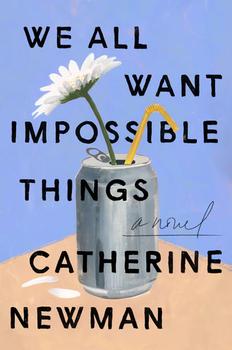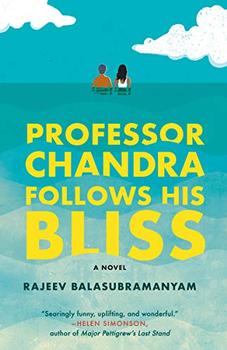Summary | Excerpt | Reading Guide | Reviews | Beyond the book | Read-Alikes | Genres & Themes | Author Bio

A Novel
by Rachel JoyceA novel of unsentimental charm, humor, and profound insight into the thoughts and feelings we all bury deep within our hearts, The Unlikely Pilgrimage of Harold Fry introduces Rachel Joyce as a wise - and utterly irresistible - storyteller.
Meet Harold Fry, recently retired. He lives in a small English village with his wife, Maureen, who seems irritated by almost everything he does, even down to how he butters his toast. Little differentiates one day from the next. Then one morning the mail arrives, and within the stack of quotidian minutiae is a letter addressed to Harold in a shaky scrawl from a woman he hasn't seen or heard from in twenty years. Queenie Hennessy is in hospice and is writing to say goodbye.
Harold pens a quick reply and, leaving Maureen to her chores, heads to the corner mailbox. But then, as happens in the very best works of fiction, Harold has a chance encounter, one that convinces him that he absolutely must deliver his message to Queenie in person. And thus begins the unlikely pilgrimage at the heart of Rachel Joyce's remarkable debut. Harold Fry is determined to walk six hundred miles from Kingsbridge to the hospice in Berwick-upon-Tweed because, he believes, as long as he walks, Queenie Hennessey will live.
Still in his yachting shoes and light coat, Harold embarks on his urgent quest across the countryside. Along the way he meets one fascinating character after another, each of whom unlocks his long-dormant spirit and sense of promise. Memories of his first dance with Maureen, his wedding day, his joy in fatherhood, come rushing back to him - allowing him to also reconcile the losses and the regrets. As for Maureen, she finds herself missing Harold for the first time in years.
And then there is the unfinished business with Queenie Hennessy.
1
Harold and the Letter
The letter that would change everything arrived on a Tuesday. It was an ordinary morning in mid-April that smelled of clean washing and grass cuttings. Harold Fry sat at the breakfast table, freshly shaved, in a clean shirt and tie, with a slice of toast that he wasn’t eating. He gazed beyond the kitchen window at the clipped lawn, which was spiked in the middle by Maureen’s telescopic washing line, and trapped on all three sides by the neighbors’ stockade fencing.
“Harold!” called Maureen above the vacuum cleaner. “Post!”
He thought he might like to go out, but the only thing to do was mow the lawn and he had done that yesterday. The vacuum tumbled into silence, and his wife appeared, looking cross, with a letter. She sat opposite Harold.
Maureen was a slight woman with a cap of silver hair and a brisk walk. When they first met, nothing had pleased him more than to make her laugh. To watch her neat frame collapse into ...
This novel is the epitome of the expression "stop and smell the roses." Harold's pilgrimage is reflective, heart -breaking, and most of all about hope and faith..continued
Full Review
 (598 words)
(598 words)
(Reviewed by First Impressions Reviewers).
 Claire Tomalin, author of Charles Dickens: A Life
The odyssey of a simple man... original, subtle and touching.
Claire Tomalin, author of Charles Dickens: A Life
The odyssey of a simple man... original, subtle and touching. Helen Simonson, author of Major Pettigrew's Last Stand
Marvelous! I held my breath at his every blister and cramp, and felt as if by turning the pages, I might help his impossible quest succeed.
Helen Simonson, author of Major Pettigrew's Last Stand
Marvelous! I held my breath at his every blister and cramp, and felt as if by turning the pages, I might help his impossible quest succeed. Nancy Horan, author of Loving Frank
When it seems almost too late, Harold Fry opens his battered heart and lets the world rush in. This funny, poignant story about an ordinary man on an extraordinary journey moved and inspired me.
Nancy Horan, author of Loving Frank
When it seems almost too late, Harold Fry opens his battered heart and lets the world rush in. This funny, poignant story about an ordinary man on an extraordinary journey moved and inspired me. Paula McLain, author of The Paris Wife
There's tremendous heart in this debut novel by Rachel Joyce, as she probes questions that are as simple as they are profound: Can we begin to live again, and live truly, as ourselves, even in middle age, when all seems ruined? Can we believe in hope when hope seems to have abandoned us? I found myself laughing through tears, rooting for Harold at every step of his journey. I'm still rooting for him.
Paula McLain, author of The Paris Wife
There's tremendous heart in this debut novel by Rachel Joyce, as she probes questions that are as simple as they are profound: Can we begin to live again, and live truly, as ourselves, even in middle age, when all seems ruined? Can we believe in hope when hope seems to have abandoned us? I found myself laughing through tears, rooting for Harold at every step of his journey. I'm still rooting for him. Tiffany Baker, author of The Little Giant of Aberdeen County
The Unlikely Pilgrimage of Harold Fry takes the most ordinary and unassuming of men and turns him into a hero for us all. To go on this journey with Harold will not only break your heart, it might just also heal it.
Tiffany Baker, author of The Little Giant of Aberdeen County
The Unlikely Pilgrimage of Harold Fry takes the most ordinary and unassuming of men and turns him into a hero for us all. To go on this journey with Harold will not only break your heart, it might just also heal it.In Rachel Joyce's debut novel, Harold Fry sets off on what the book title refers to as an "unlikely pilgrimage"; but can his journey correctly be called a pilgrimage if it doesn't have a religious destination?
Although most of us probably think of a pilgrimage as having religious connotations, the word has its roots in the Latin peregrinus, meaning coming from foreign parts. Thus, the lead definition in the Oxford English Dictionary (OED) of a pilgrim is simply "one who travels from place to place: a wanderer, a sojourner".
 Many reviewers refer to Harold's journey as a quest. Is that also an accurate description?
Many reviewers refer to Harold's journey as a quest. Is that also an accurate description?
According to the OED, a quest is a search for something - such as the quest for the Holy Grail or for the...

If you liked The Unlikely Pilgrimage of Harold Fry, try these:

by Catherine Newman
Published 2023
For lovers of Meg Wolitzer, Maria Semple, and Jenny Offill comes this raucous, poignant celebration of life, love, and friendship at its imperfect and radiant best.

Professor Chandra Follows His Bliss
by Rajeev Balasubramanyam
Published 2020
Follow the completely infuriating, utterly charming Professor Chandra as he tries to answer the biggest question of all: What makes us happy?




A classic is a book that has never finished saying what it has to say
Click Here to find out who said this, as well as discovering other famous literary quotes!